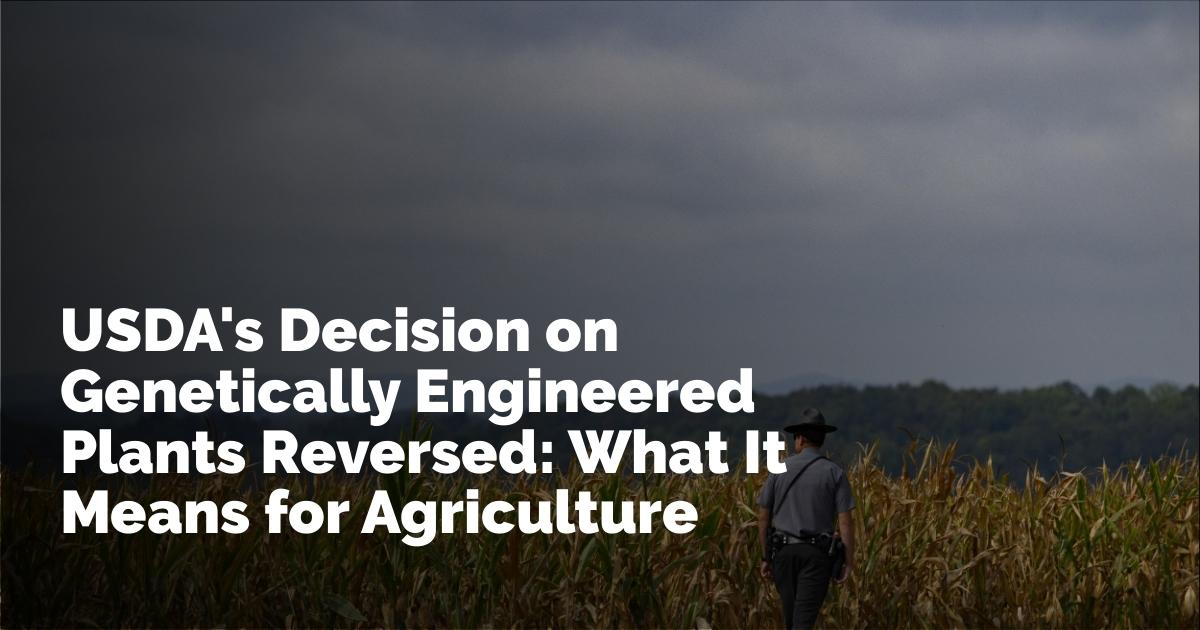USDA’s Genetically Engineered Plants Ruling Faces Major Overturn
The legal landscape for genetically modified crops in the United States experienced a significant shift when a federal judge ruled against the exemption these crops had from safety regulations. The decision comes as a blow to the genetically engineered crop industry, which has long advocated for reduced regulatory oversight.
Understanding the Case
The ruling was issued by Judge James Donato, based in San Francisco, who was appointed by former President Barack Obama. This legal action targeted the U.S. agriculture secretary, Tom Vilsack, and was initiated by the National Family Farm Coalition along with other opponents of genetically modified crops.
The crux of the lawsuit was the challenge against the Agriculture Department's Animal and Plant Health Inspection Service's (APHIS) 'final rule.' This rule had allowed genetically modified crops to bypass standard safety tests designed to ensure new crops do not become invasive weeds that could spread uncontrollably to neighboring farms.
The Impact on Organic and Non-GE Farms
Farmers opposing the rule included Peter Baumer, Darvin Bentlage, and Jonathan Krohn, all of whom cultivate organic or non-genetically engineered (GE) farms. Judge Donato pointed out that without the necessary regulations, these farmers faced considerable threats of contamination from nearby genetically modified crops.
Specifically, one farmer expressed concerns about being located near several GE farms, highlighting the need for preventive measures to avoid contamination, while others anticipated rising costs due to a need for stricter measures and the procurement of non-GE seeds. Judge Donato emphasized that such potential harms were concrete enough to establish legitimate concerns and threats to the organic and non-GE farming community.
The Rationale Behind the Court's Decision
Judge Donato deemed the Agriculture Department's approach towards the regulation of genetically modified crops as "arbitrary and capricious." He criticized the department for not leveraging its authority under the noxious weed mandate to regulate these crops effectively. The oversight, according to Donato, could lead to the unchecked spread of genetically modified crops, posing severe risks to traditional agriculture.
The decision resulted in the vacating of the existing APHIS rule and directed a review and reconsideration. The judge granted summary judgment to the plaintiffs, upholding their argument that excluding the noxious-weed authority in the final rule was fundamentally misguided.
Regulatory Background and Future Implications
This ruling traces back to 2004 when APHIS initially decided to reassess its regulations surrounding genetically engineered organisms. The disputed final rule, implemented in May 2020, drastically minimized federal oversight, effectively granting freedom to genetic crop developers and associated businesses.
The plaintiffs, representing nonprofit and public-interest groups, argued that the government’s final rule abandoned crucial regulatory frameworks, raising alarms over food safety, the environment, and economic impacts on farmers. This decision signals a renewed commitment to stringent oversight and a potential restructuring of how genetically engineered crops are governed in the future.
The court’s decision could prompt a wide array of changes impacting stakeholders across the agricultural sector, positioning organic and non-GE farmers at the forefront of forthcoming regulatory modifications. As the case makes its way through reconsideration, its outcomes may redefine the operations and responsibilities of agricultural businesses entwined with genetic crop technologies.
출처 : Original Source

